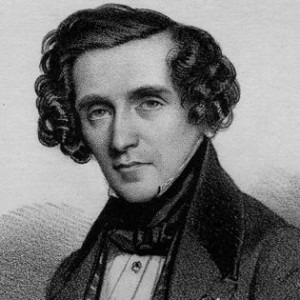
Giacomo Meyerbeer
Credit: http://intoclassics.net/
Following the Reformation, the most important factor in dynastic marriages was the matter of confession. Inter-confessional marriages within the higher nobility were nearly impossible. In the few rare cases in which such a cross-confessional marriage was affected, public opinion expected if not demanded the conversion of the bride. As each dynastic marriage represented in investment in the future, the most important factor regulating such union was exclusivity or parity. Members of a ruling house usually did not marry minor nobles. Such bad matches had the potential for a considerable reduction in social prestige and the squandering of social capital. During the tumultuous and rebellious times of the 19th century, various European dynasties sought new strategies of maintaining their dominance within the increasingly bourgeois societies. Yet bourgeois society itself, in the face of aggressive nation building, imitated aristocratic mannerism when it came to marriage.

Minna Mosson
Lea Mendelssohn and Amalie Beer had become joined by the marriage of Abraham’s niece Betty to Heinrich Beer. While Lea had reluctantly agreed to the baptism of her children, Amalie was determined that her son Giacomo Meyerbeer would retain his Jewish identity. But Giacomo had other problems as well. He was already 33 and living in Italy, and “His nervous afflictions, real and imagined,” multiplied as the years passed. He kept in close touch with his family in Berlin, and reported all manners of “nervous exhaustion, stomach ailments, digestive problems, headaches, and painful skin rashes.” His parents turned a blind eye to various short-lived romantic episodes, but when it came time to marry, the wife would have to be appropriate to their elevated position. So Amalia went to considerable effort to find the right mate for her son, and when a match with an Ephraim descendant did not come to pass, she selected Giacomo’s first cousin, Minna Mosson. Minna was the daughter of Joseph Moses who subsequently changed his name to Mosson, and Johanna Liebmann Meyer Wulf, the younger sister of Amalia Beer. And so it came to pass that Giacomo married Minna on 25 May 1826. Game of Thrones would tell you that such arranged inter-family marriages were automatically doomed to failure; I’ll tell you next time how Giacomo and Minna got along.
Giacomo Meyerbeer: Romilda e Costanza, Trio “Che barbaro tormento”

